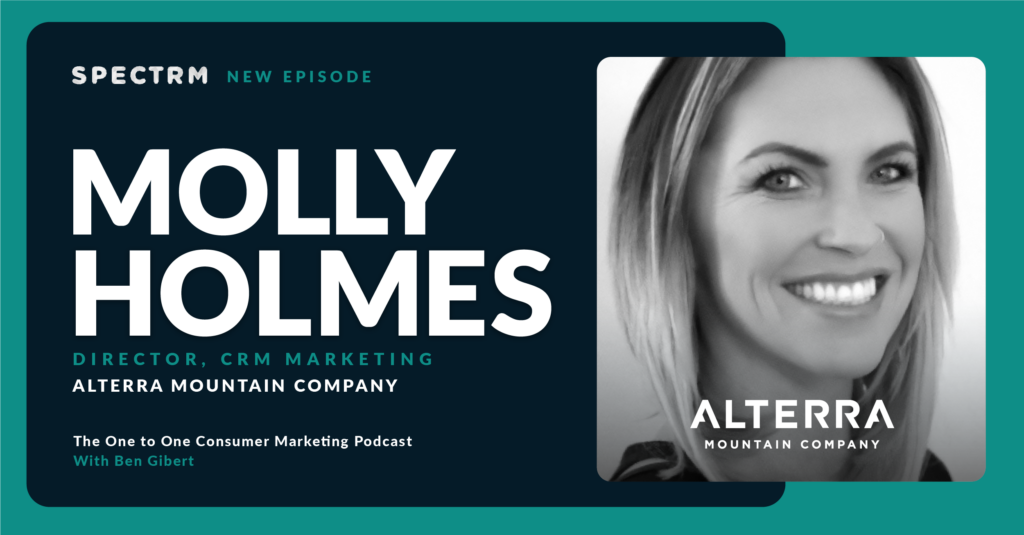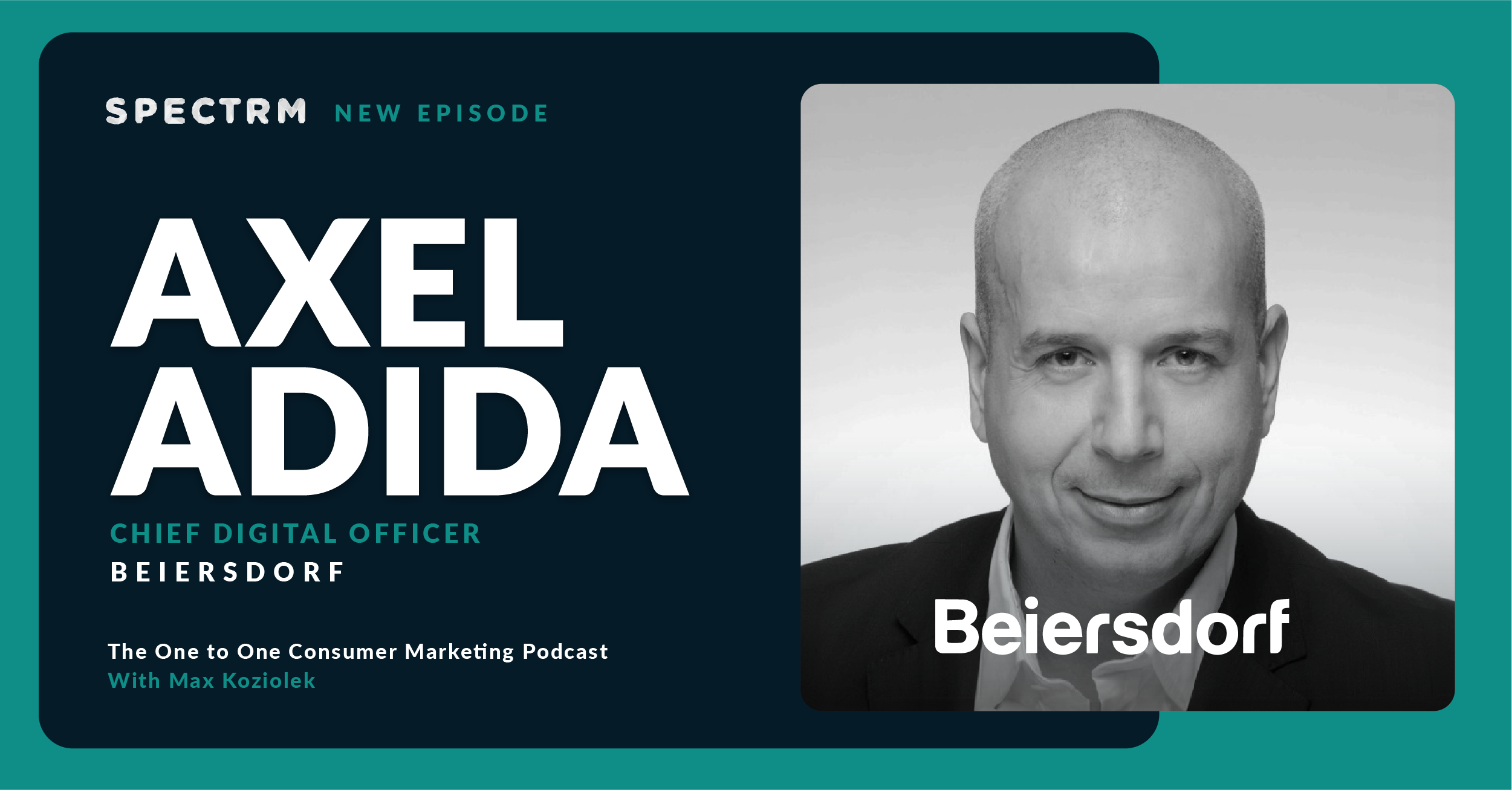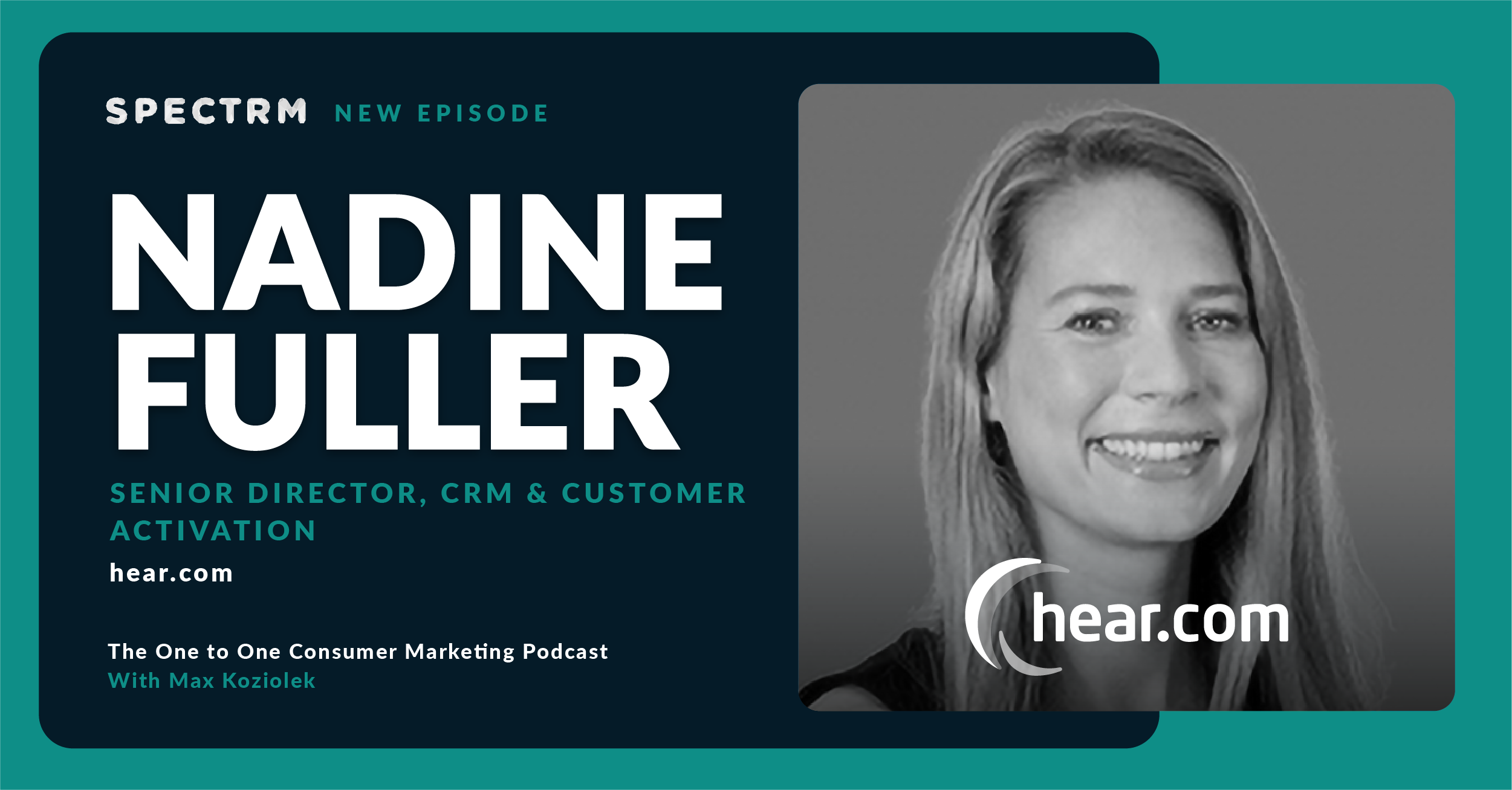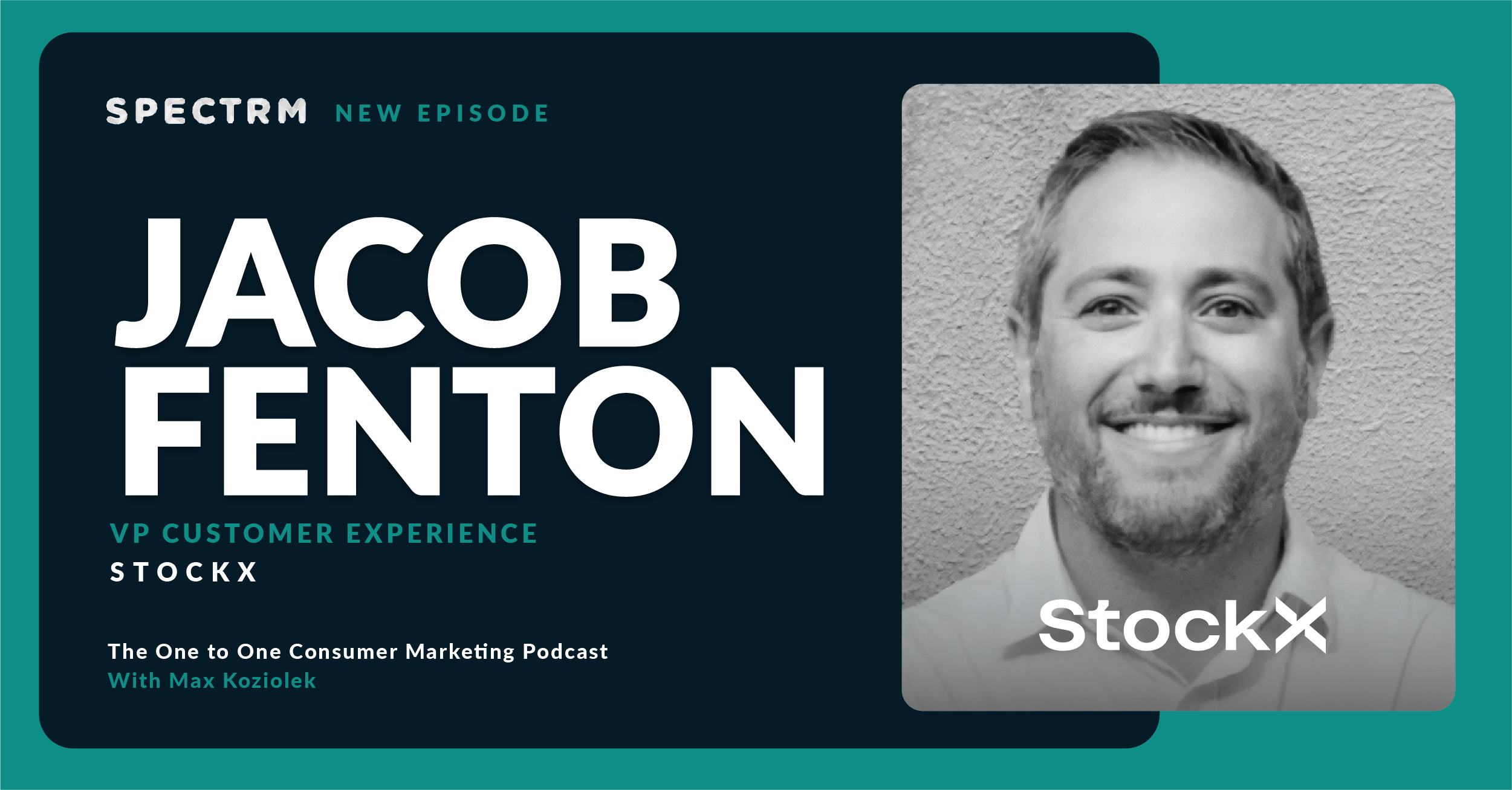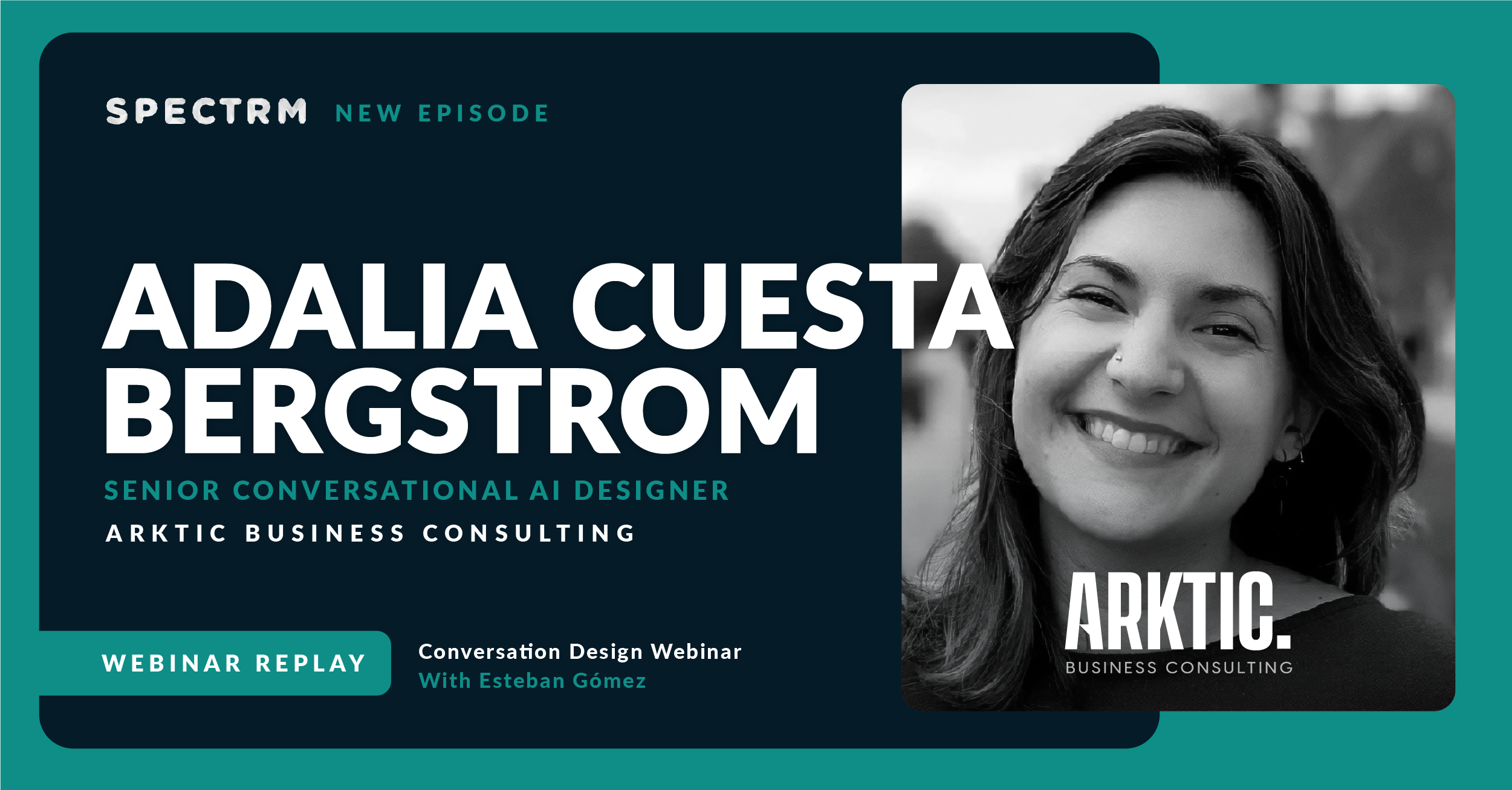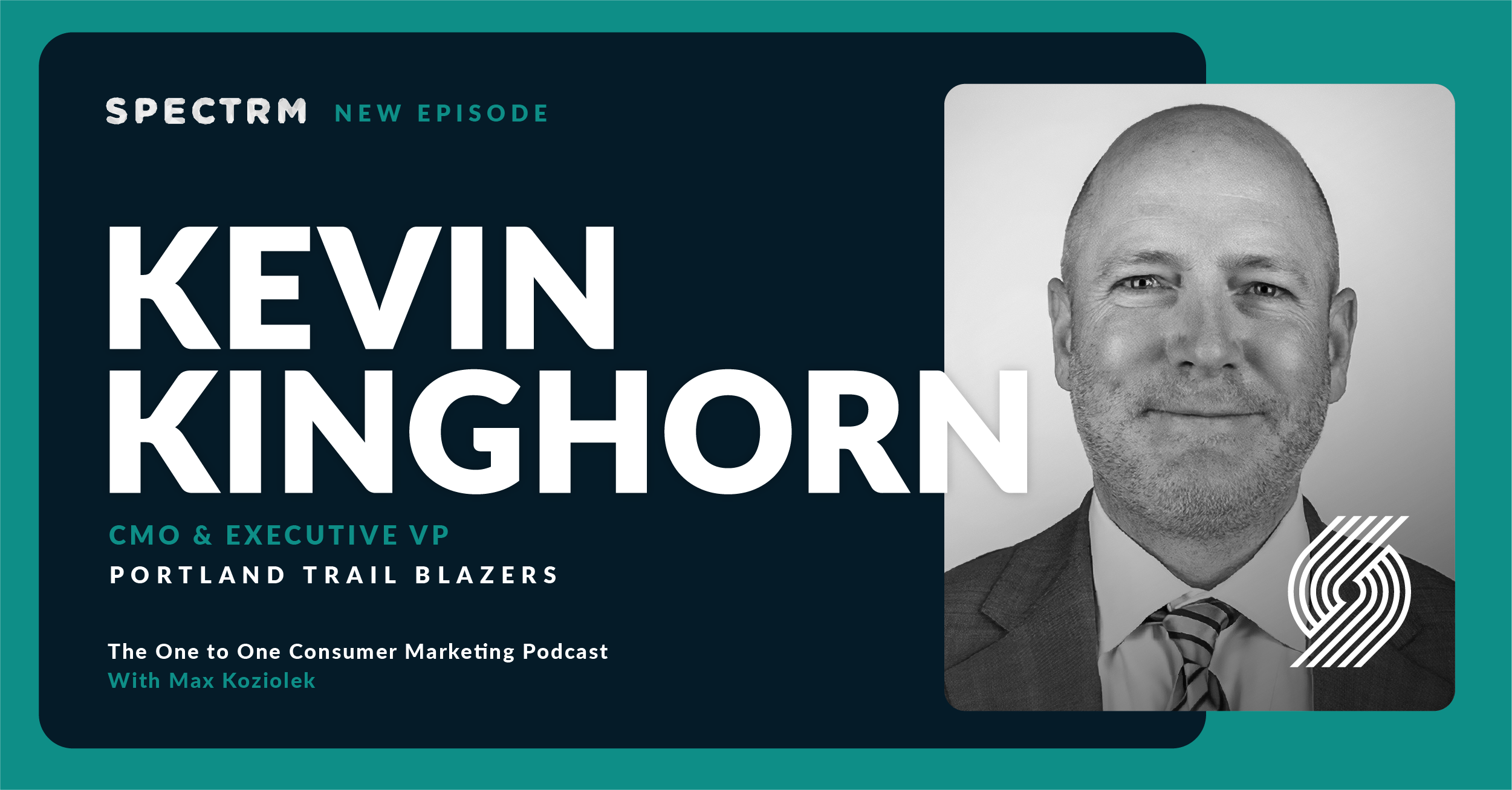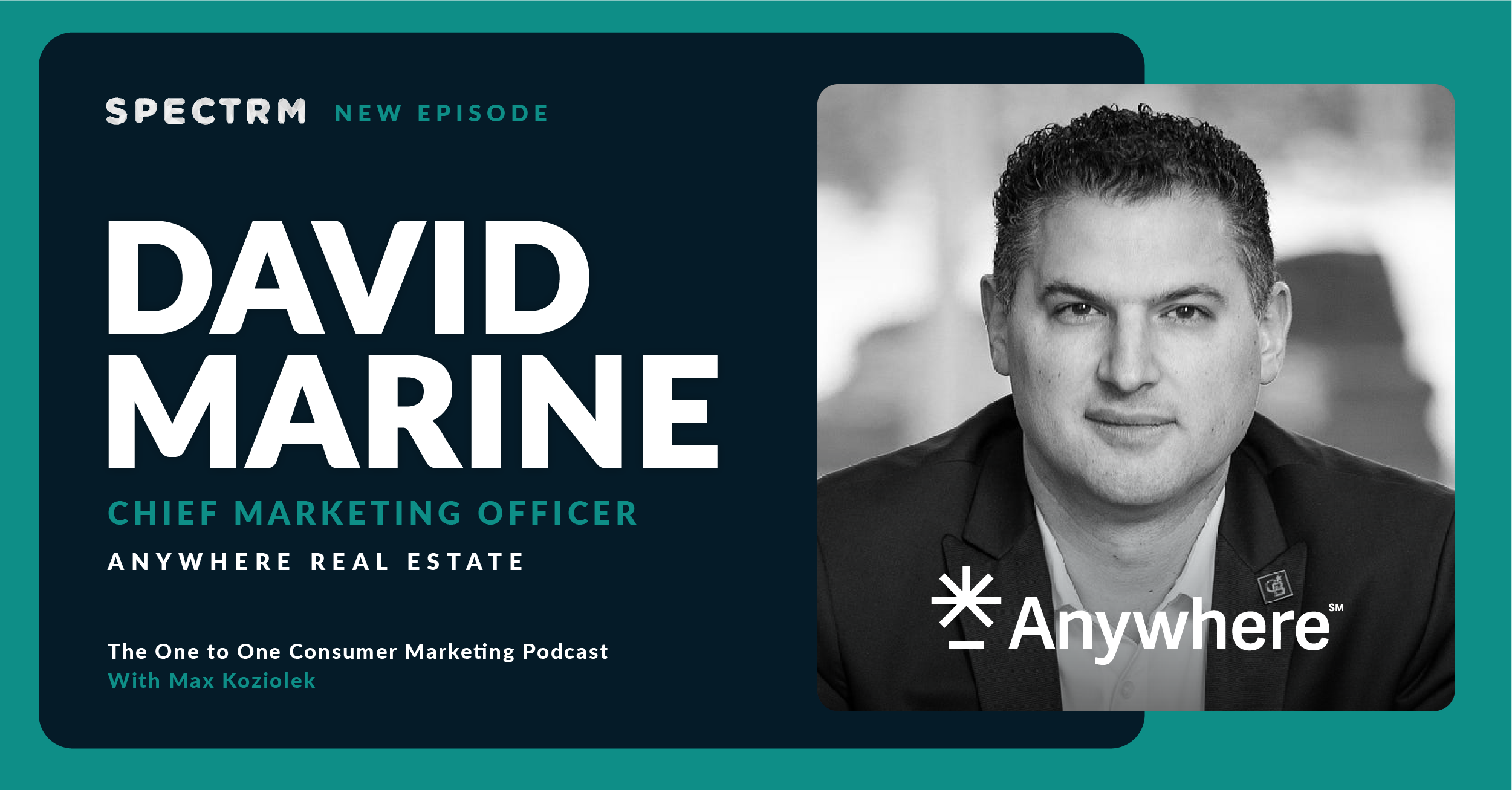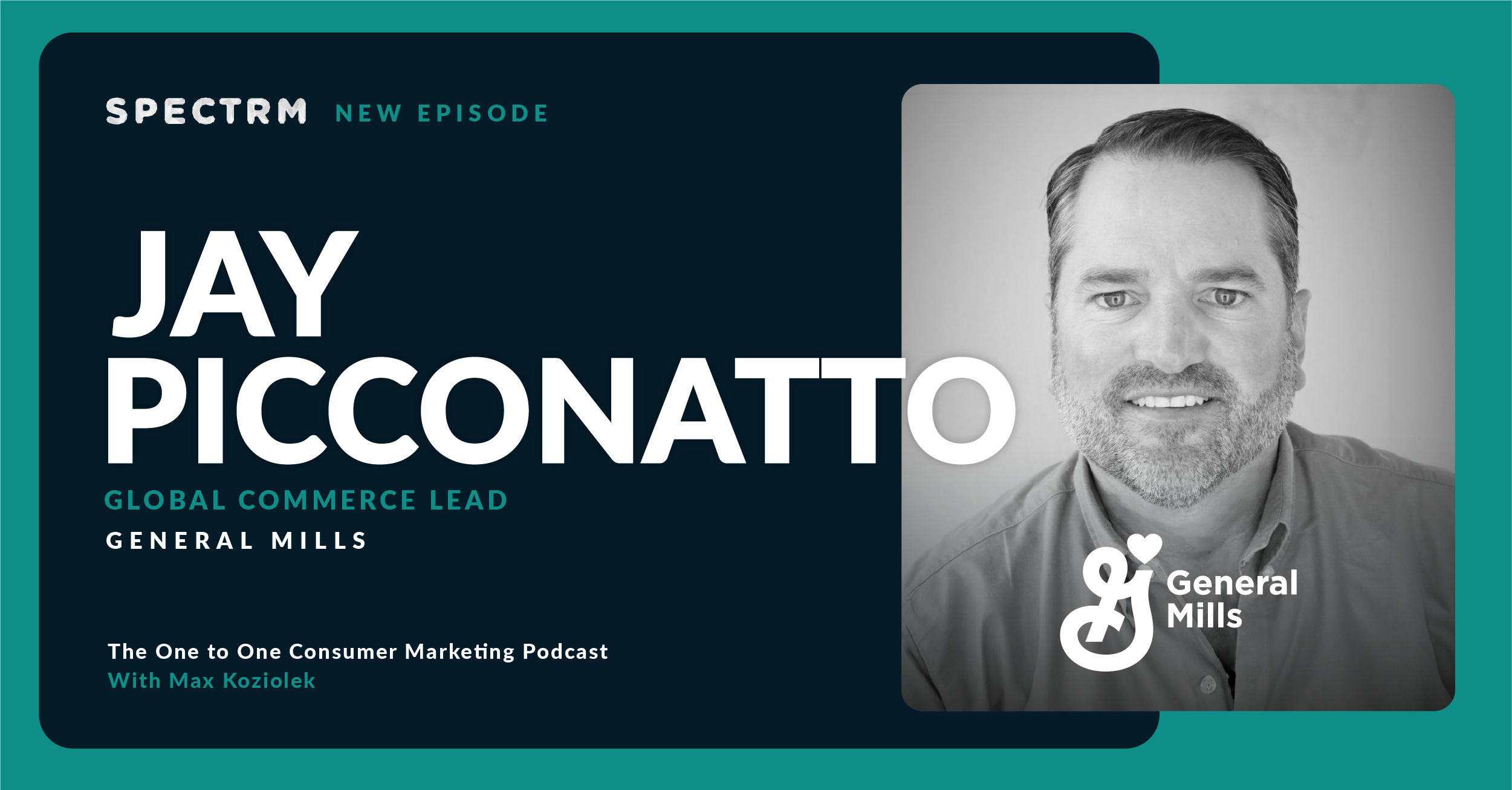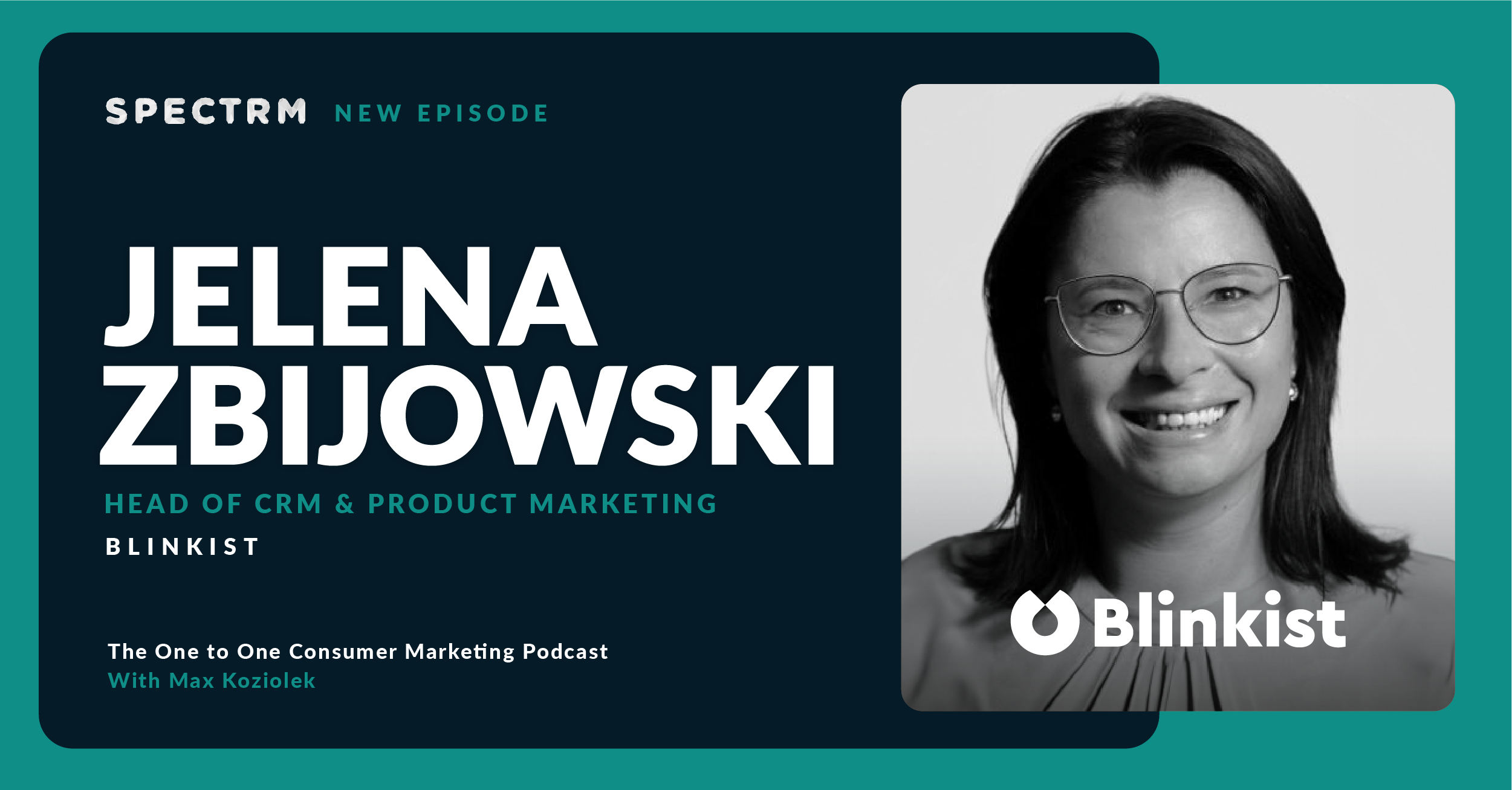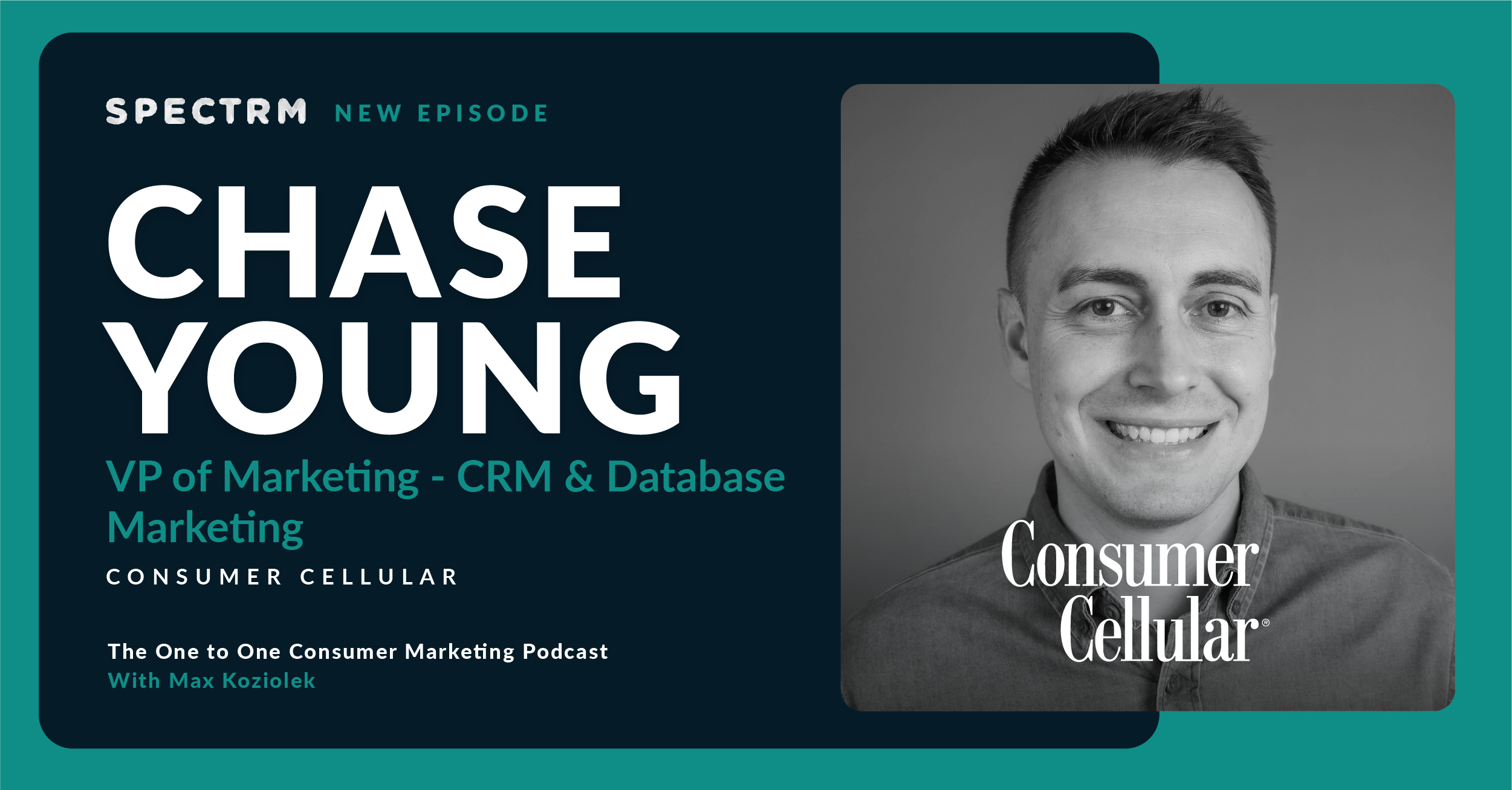Summary
Ben speaks with Molly Holmes, Director, CRM Marketing at Alterra Mountain Company, a family of ski destinations and experiences. They discuss Molly’s love of data and the importance of using data to drive creative campaigns, why customer relationships are built on an equal exchange of value, and the danger of drowning in too much data. They also discuss the challenges of privacy regulations, effective CRM channels, advice for new marketers, and how AI tools will free up marketers for more orchestration in the future.
Topics discussed
- How Molly started her career in economics and studio art, and how she’s stayed at the intersection of art and science in her various marketing roles in the ski and hospitality industry, now the Director of CRM Marketing at Alterra Mountain Company.
- Why Molly gets excited about data, how it can be used to create impactful campaigns, and why customers are much more comfortable giving their data today.
- Why retention and lifecycle marketing is like building a relationship where there’s equal value exchange on both sides, and how Alterra Mountain Company goes about providing that value to customers.
- Why ways to track via a third party are becoming less reliable and effective, and why many companies are turning to zero- and first-party data instead.
- The challenges of data at scale that can easily overwhelm you, and how to create smart, simple campaigns instead.
- What channels Molly sees as most effective or that have great potential, including email, apps, SMS, and even direct mail.
- Advice to marketers that includes keeping things simple and the importance of measurement.
- What the future of consumer marketing will look like, and how AI-powered tools will allow marketers to orchestrate more.
I think of myself as a relationship marketer. CRM. It's funny, I think people who are working in CRM don't often know what it stands for. But Customer Relationship Marketing or Relationship Marketing to me is really about that relationship. And the fundamentals of that are not different to any other relationship that you have in your own life, with your best friend or with your significant other. I think the foundation of a successful relationship is each part is providing equal value and each part is gaining something from that relationship.
Guest biography
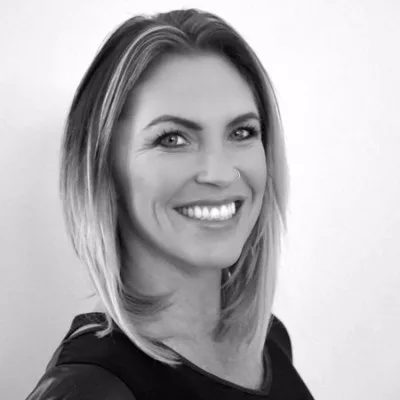
- Leads the strategy of multi-channel CRM initiatives for Alterra Mountain Company, fostering profitable long-term relationships and driving incremental revenue, visitation, retention, and loyalty for the family of Alterra resorts.
Company overview
Alterra Mountain Company is a family of 16 iconic year-round resorts, the world’s largest heli-skiing operation, and Ikon Pass – the premier ski and snowboard season pass offering access to more than 50 iconic mountain destinations around the world. Headquartered in Denver, Colorado and born out of a shared love of the mountains and adventure, the company has brought together some of the world’s most aspirational brands, including: Steamboat and Winter Park in Colorado; Palisades Tahoe, Mammoth Mountain, June Mountain, Big Bear Mountain Resort and Snow Valley Mountain Resort in California; Stratton Mountain and Sugarbush Resort in Vermont; Snowshoe Mountain in West Virginia; Tremblant in Quebec and Blue Mountain in Ontario, Canada; Crystal Mountain in Washington; Deer Valley Resort and Solitude Mountain Resort in Utah; and CMH Heli-Skiing & Summer Adventures in British Columbia. Also included in the portfolio is Alpine Aerotech, a worldwide helicopter support and maintenance service center in British Columbia, Canada and Aspenware, the ski industry leader in technology services and e-commerce.
Industry: hospitality | www.alterramtn.co
Subscribe to the podcast newsletter
Transcript
00:00
Molly Holmes
I think of myself as a relationship marketer CRM. It’s funny, I think people who are working in CRM don’t often know what it stands for, but customer Relationship Marketing or Relationship Marketing, to me, it’s really about that relationship. And the fundamentals of that are not different to any other relationship that you have in your own life with your best friend or with your significant other. I think the foundation of a successful relationship is each part is providing equal value, and each part is gaining something from that relationship.
00:44
Ben Gibert
Hey, everyone, and thanks for listening to and watching the one to one consumer marketing podcast. Today I’m talking to Molly Holmes, who’s director of CRM marketing at Altera Mountain Company. Molly, thanks so much for joining.
00:56
Molly Holmes
Yeah, happy to be here.
00:58
Ben Gibert
Yeah, I’m looking forward to our conversation today. Before we get started, can you give our audience a little intro on yourself and how you ended up in your current role?
01:07
Molly Holmes
Yeah, so I think where I’ll start is just in college, I studied economics and was kind of on track to double major in math econ. But I took an art class from the art director, and she kind of encouraged me to take more art classes. So I ended up majoring in economics but minoring in studio art, which a lot of people kind of, like, crinkle their eyebrows. Like, why would you do that? And I thought, I don’t know, maybe I’ll get into marketing. But I think it looking back now, it makes a lot of sense because I think everything since then I’ve pursued within my career has really been sort of at that intersection of art and science. And so I think that’s kind of looking back now how I got into what I do today. I wanted to get into marketing. I thought, Well, I guess that’s kind of like business and art, so maybe I’ll do something in ads or something.
01:58
Molly Holmes
So I actually landed a job with a creative agency that was sort of a boutique agency, sort of my first job in the marketing space, and I thought it was I’d landed the dream job. The company was, at the time, primarily doing most of the marketing for Vale Resorts. And I grew up in Colorado. I’m big skier and snowboarder. So I was like, wow, this is so cool. I’m meeting with all these executives at Bail Resorts every week, and they were going through a shift at the time and ended up dumping the agency and going with Oval V or something shortly after I started. So I think six months into the job, I got laid off with pretty much everybody, and I was like, oh, my God, devastated. But that actually led into another job, more in the data space. So I was hired as a research analyst for a marketing company that a research analyst or a research marketing company that worked primarily in the hospitality industry but was just starting to get into the ski industry.
02:59
Molly Holmes
And so I wrote surveys for my clients and helped them analyze their customer data and quickly became more of kind of an account manager in understanding their customer data and how to leverage that. Working with the MPs score, working with guest satisfaction, I decided at that job that I wanted to be a marketing director at a ski resort. So I went to get my MBA, took a couple of years off to do that, and then worked for a company in the database marketing space. That’s kind of what it was called at the time, but building customer databases specifically for ski resorts. The company was founded by a whole bunch of xVALE Resorts people. So it was great I could still stay in the ski industry space, but that’s really where I started to develop a passion for using customer data and leveraging it to help companies market to their guests and reach their guests in that one to one personal way.
03:53
Molly Holmes
I was then able to move to the brand side in 2014, moved to Mammoth Lakes, and I got to kind of fulfill my dream working for a ski resort. Worked for Mammoth Resorts, which owned, at the time mammoth Mountain, June Mountain, and Big Bear Mountain resorts in Southern California. So I ran their CRM program for four years, and were bought by what’s now formed as Altera Mountain Company and in 2018 became the director of CRM here at Altera.
04:21
Ben Gibert
Nice. Thank you so much for that overview. I think the intersection of art and science is a great way to put what marketers do. A lot of the times, it really is operating in those two spaces. And I looked at your LinkedIn profile before the interview. I saw, like, heavy focus on the ski industry, so I assumed you must be a big skier. I’m a snowboarder myself, but also I love to ski occasionally. What is your favorite ski resort? Are you not allowed to say because you’re in charge of so many?
04:51
Molly Holmes
Well, it’s funny because I did grow up in Colorado, and my family always had a house in Vale, so I was very fortunate. We went to Vale every single weekend growing up, and I lived in Vale for a period of time. That’s where my family still currently lives, so I get to go there a lot. But I would say that my favorite mountain actually is June Mountain, which I hesitate to say because if you’re a skier or snowboarder, you don’t want to give away the little secret gems. But this is a total gem. It’s 20 minutes from Mammoth Mountain, and on any given powder day at Mammoth Mountain, you will have crowds lined up, just waiting for ropes to drop and lifts to open. But if you go to June, you will get the same powder and just be riding that powder all day long with no crowds.
05:36
Molly Holmes
And it’s just this cute little mom and pop little resort that they’ve left to be that way. So that is by far my favorite little mountain resort, but love Beaver Creek as well. That’s a home mountain of mine.
05:47
Ben Gibert
Nice. Yeah. Thank you. That’s a great tip before we dive into the marketing. So actually I grew up in Europe, so I haven’t been to as many places out here, but big fan of Balto Halls, a couple of other places in the Alps as well around Shamoni. But Shamoni I guess is kind of like Vale, which is very busy and there’s a lot of kind of out of the way spots like June Mountain that have less people but equally great snow. Well, you got the tip here. Go check it out. I hope you don’t I don’t think the podcast has so many listeners. It’s going to be overrun in the next year. But yeah, thank you for that. You also mentioned getting really into customer data, right? And honing in on that as your focus as an account manager when you kind of moved into the ski resort world, but also just kind of all of the work you’ve done around database marketing in general.
06:39
Ben Gibert
Does that influence how you think about consumer marketing today or what does that look like for you?
06:45
Molly Holmes
Yeah, I think absolutely. I don’t think you can think about consumer marketing without thinking about data. It’s really become the forefront, I think, of a lot of marketing activation and reaching that customer or that guest at the right time, at the right place with the right message and through the right channel. That’s what everybody is talking about and that’s sort of the goal, right? So obviously I’ve been very data forward and because of the drive and passion of mine to live in that balance of art and science, I think I really get excited about data, which I think also kind of makes people question what I’m saying because they’re like, how is that exciting? But it is. It can be really fun. And then using that data to come up with really creative campaigns, I think is where I love to live in that space.
07:36
Molly Holmes
But yeah, consumer marketing is really interesting because of the shift in how important data has become, how much data is available about our customers, but also just because customers right now are so much used to using data. Like, I think even pre pandemic, there were still groups of people who were not as tech savvy who were a little afraid to use data. And that really has shifted since the pandemic. So not only do we as marketers have so much data available to us, but our customers are really willing to give that data when they weren’t necessarily before. I’ve talked about this before, but I’ll use my sweet mom as an example. I still don’t think knows how to upload a photo onto Facebook and she’s always asking me, can you upload this for me or can you help me with this email? But she knows how to use a QR code because of the pandemic, right?
08:32
Molly Holmes
And she is deeply giving her data to companies because you had to in the pandemic, you had to make a reservation at a restaurant or to get notified if you were in contact with somebody. Right. So not just with a business, but just in general, we are now so much more willing to give that data. So, again, that just kind of makes that data more available for us as marketers to then use and talk to our guests in a really personalized way.
09:02
Ben Gibert
Yeah, I think that’s really the key. How do you talk to them in a personalized way using that data? And I’m curious at Altera specifically because it seems like you kind of operate as a portfolio of a bunch of different brands as the ski resorts. Right? So what does that look like on the data side? Are those all different CRM systems? Are they all under one piece for Altera? Or how does that look like?
09:27
Molly Holmes
That’s a whole other podcast in and of itself, part two. And obviously we’re a private company, so I can’t give too much away on how that’s structured. But I can say that being in the ski industry, the systems and the platforms that we use to collect data, they’re very specific to the ski industry and they’re a bit archaic. And so that is one of our challenges, is just being able to figure out how to consume that data and organize it in a way that then allows us to activate on it in a smart way. So we do have very desperate systems across our organization, and there is not one size that fits all for anything that we do in our business, which does pose some challenges, but it also opens the opportunity for new ideas because one destination might be doing something over here versus another destination doing it over here.
10:23
Molly Holmes
And that was one of my challenges when I first started with the company, is figuring out how to bring all of this data together in an organized way so that we could market and activate on it for each destination individually or as an entire company as a whole.
10:37
Ben Gibert
Yeah, I can imagine that would be a challenge across all of those different brands. So I’m looking forward we can dig into the challenges a bit more later in this episode. But before we do that, can you tell me at a higher level how you think about retention and then lifecycle marketing more generally? You’ve presented a very data first approach. I’m assuming that also informs how you approach retention and lifecycle marketing.
11:03
Molly Holmes
Yeah, it does. And the best way that I feel like I can answer this question, I think of myself as a relationship marketer CRM. It’s funny, I think people who are working in CRM don’t often know what it stands for, but customer relationship marketing or relationship marketing, to me, it’s really about that relationship. And the fundamentals of that are not different to any other relationship that you have in your own life with your best friend or with your significant other. I think the foundation of a successful relationship is each part is providing equal value, and each part is gaining something from that relationship. That’s what makes a relationship successful. So that’s how I approach relationship marketing, retention marketing, lifecycle marketing. I want to provide as much value to my guests as they are providing to me as a business. And I think if I can do that, then that’s really a successful program.
12:05
Molly Holmes
That’s how you build that trust. That’s how you build loyalty. That’s how you build lifetime value. And that’s what keeps customers coming back, whether that’s every year or every four years. Building that relationship with the guests is really what it’s all about. And so forget the data. That’s how you can accomplish lot. To me, the strategy is about building that relationship and thinking, first, how can I provide as much value to my guests as I’m getting from them?
12:33
Ben Gibert
Yeah, I love that. Focusing on the relationship, the data is a means to an end, but really the end goal is building a relationship with your customers. And it sounds like you’re really focusing on value, seeing the direct translation between the relationships we have with friends and family and applying the same logic to customers. In that light, what are the things that you think really help to build trust and what are you adding value? Like, how do you do that within the context of the relationship?
13:02
Molly Holmes
Well, I think as a company, you’re first trying to figure out how you can get that value from, I guess. And so you have an objective or a campaign or something that you’re trying to achieve. In my business, we’re trying to sell a lot of passes. Right. But to me, my job then is to say, okay, but in order for us to sell a lot of passes, what are my customers going to get out of that? And then, like you said, using the data to be able to demonstrate that. So, as a passholder, if I know that you ski at a certain resort a lot, or in your case, you mentioned you like to go to Europe and you grew up in Europe. If I have that information about you and I can speak to you about that. This pass that you’re going to buy is actually going to get you access to all these great mountains in Europe as well as in North America.
13:53
Molly Holmes
That’s going to speak. To you that’s going to make you go, oh, wow. You know me. And you care about what I want just as much as I might want you to buy a pass. Right. So it’s really trying to, again, leverage the data in a smart way and in a really customer centric, customer forward way, what is my customer going to get out of this? And how can I demonstrate that? Through the use of the data that I have about them and what I know about them. Right. So I think that to me is how I think about it and I approach it. And I think the other thing too to consider is that especially in an age where we do have so much data available to us, another way to build trust is not just through that personal experience and that best in class guest experience that you can deliver through data, but also just not misusing that data.
14:43
Molly Holmes
And that’s something that I think is always something we have to keep at the forefront of. I can really go pretty far and pretty deep into getting really creepy with some of the data that I have about my customers, but also understanding that might break some of that trust if I don’t use it correctly. So I think it’s just as important to think about how can I best leverage this data, but also not going too far and making sure that I’m protecting the trust and the integrity of the data.
15:13
Ben Gibert
Yeah, such a key point to maintaining trust in the relationship too. Right. Not violating it by using the data inappropriately or in a way that feels very creepy, which I think speaks to the power of CRM specifically because a lot of acquisition growth marketers are using third party data. They’re following people around different websites and apps that can get a little creepy. But in your world, in the world of CRM and relationship marketing, it is a very one to one approach. So it’s hopefully somewhere as well where you have more opportunity to use data in a non creepy way, but also where you can make sure that you are sensitive to that.
15:49
Molly Holmes
Absolutely.
15:50
Ben Gibert
Looking at your company more widely and the role of retention in it, right. You mentioned lifetime value as being kind of your KPI. Maybe there are others as well. But how does retention fit into your company strategy and has that seen a stronger focus in the last twelve months with everything that’s been going on in the economy?
16:09
Molly Holmes
Yeah, absolutely. One of our main measurement in the ski industry, which I think is becoming more and more popular across many industries, but has been that promoter score, which is a true measurement of loyalty. So that’s always been a focus in just trying to drive that loyalty. Right. But we’ve also undergone extensive efforts to try to understand what that lifetime value is of a customer. So not just what you’ve done in the past five years and how you interacted with us as a guest, what money you’ve spent, and those behaviors that you’ve done in the past, but really trying to understand and predict. What you might do in the future so that we can help to build strategies that, again, provide value along that life cycle, but also helps to drive value out of those guests by increasing that lifetime value over time. So it is a big focus and I think any company right now who isn’t thinking about it, they should because as you mentioned with third party cookies and some of these other things that are really starting to become less reliable and may not be as effective, really trying to drive that retention.
17:23
Molly Holmes
And that loyalty piece is becoming a huge strategy for any company and is certainly at the forefront of what we think about on a day to day basis.
17:30
Ben Gibert
Yeah. So is that third party cookie deprecation, like all of the privacy updates that are happening, mail privacy, are those kind of very top of mind for you right now?
17:39
Molly Holmes
Absolutely. Yeah. And there’s a lot you can read about it too. But I think it’s just ultimately, from my perspective is it’s just becoming less and less reliable. Obviously, as the first party data owner and advocate, I’ve always felt that was the best strategy. But you see now companies really starting to shift away from those third parties and really focusing a lot of their efforts into first party data. And it’s not to say that I don’t think third party cookies will necessarily ever go away. There was big talks of Google deprecating their third party cookies and that hasn’t quite happened yet, but it’s just becoming less and less reliable. So you’re not targeting that right person at the right time. You might be thinking you’re targeting the right person, but you all of a sudden, my husband’s getting ads on his phone for yoga pants and he’s like, why am I getting so it’s just becoming less reliable.
18:33
Molly Holmes
And I think that to me is the biggest takeaway is that the shift in just not using and not trying to rely as much on third party cookies and really figuring out how you can leverage first party and even zero party data that’s some of the new things that I’ve been reading about is zero party data is kind of this hot topic, too. And how can you leverage zero party data, which is obviously very exciting for what I do.
18:57
Ben Gibert
Yeah, absolutely. I think you’re spot on. It’s also an opportunity, right, for the first party data owners like yourself to really take center stage and to provide that data to build the relationship and engage one to one. Like you said, the Googles, the Facebooks of the world are moving to probabilistic, kind of like group modeling. It’s not as accurate, but the first party data, all the communication that you’re going to be overseeing will become more and more important. Also something that in our space, we see a lot in zero party data in having direct one to one interactions with customers that generates such an interesting type of data that you can use to personalize the experience. So I totally agree with you that’s going to be a big thing in the future and is becoming very important right now. What are some of the you mentioned privacy, you mentioned the scale of operations across multiple brands.
19:47
Ben Gibert
What are some of the biggest challenges you’re facing right now?
19:50
Molly Holmes
Yeah, I think we talked about privacy. I’ve talked about some of the challenges right within my own industry and some of the systems that we use. But I think to me, one of the biggest challenges that really anybody has right now who is thinking about data driven strategies is just kind of you said at the scale of what we have available to us. And I often talk to and see a lot of people who are just so inundated with how much data that they have available to them that it’s like their mind is like, oh, we can do this and we can do that. And you can see them just starting to go down a rabbit hole. And I have myself too. And it’s like, but if we have this data and we can combine it with this and we can personalize this experience and then put it on the website, it makes you the availability to data makes it hard to take a step back and say, okay, but what’s the return that we’re going to get?
20:47
Molly Holmes
Because, yes, that could be really cool, but it’s also going to take a lot of effort to do that. And so I think that’s the challenge is finding that balance between using and leveraging data in a really smart way to drive value versus getting too far down the rabbit hole. And now you’ve got like 50 different experiences across all five channels and your website and it becomes very hard to measure too. And so having the ability to set up really smart campaigns that leverage the data but are simple enough to where you can activate on it correctly, you can measure the performance correctly, and you can start to optimize and tweak those strategies versus trying to do the 50 different things that you want to do or you have available to do.
21:39
Ben Gibert
Yeah, I think that’s such an important challenge to think about. Right, like the scale of it. But also not all data is created equal. There’s going to be some data that is so much more valuable when it comes to interacting with your customers. And I love the call out that as soon as you start building that many different experiences already, you’re introducing complexity that makes it hard to manage, but it’s also very hard to measure. Right, so how do you learn when you split all of that traffic or all of those people across so many different journeys? You can, but it’s a much more difficult process. So I think that’s a very good way to think about it is how do we take a step back? How do we look at the big picture and maybe focus one, two, three things that we can really learn the most from.
22:23
Molly Holmes
Exactly.
22:24
Ben Gibert
So as you do that, as you’re engaging your customers, as you’re thinking about how you build out that strategy, are there particular channels that you are a huge fan of? Are you some that are dwindling in performance? What’s kind of your take on the channel?
22:38
Molly Holmes
Yeah, well, I think it would be a myth to as a CRM marketer not talk about email. Oftentimes people think of me as just the email marketer, but email is king in my opinion. So I can’t not say how important that channel is. And I’ve seen articles over the years of email being dead and younger generations, they don’t have email, they have TikTok and things like that. But it’s still an extremely important channel to deliver that one to one communication and to deliver it at the masses too, right. Like pretty much everyone’s going to have an email or at least once they get into college and the professional world, they’re going to have an email address. And I think it’s also a channel that people are okay with the noise where there was a period where there was a lot of spam and there was a lot of worry about people unsubscribing.
23:30
Molly Holmes
I think more and more people have sort of burner accounts and they’re just sort of used to getting emails. They know they’re going to get emails a lot from companies, but they’re going to pay attention to it when they want to. And so I think it’s a channel that they’re kind of okay to just have some of that noise in there again, as long as it’s relevant and you’re not capitalizing on it too much, right. You’re not sending too many emails or just annoying somebody too much. Right. But that’s a channel certainly that I see even unsubscribes and things like kind of leveling out and people are just kind of always checking email and always using that, but more so. What I’m seeing, I think if you’re a company with an app like obviously app messaging and using that channel, not only is it a great way to communicate with people who are especially engaged with your app just to deliver that message to you, but you’re also collecting a lot of data from the app.
24:23
Molly Holmes
That’s sort of the benefit and the power of an app is you can pretty much trigger a message off of any kind of engagement that somebody’s doing in your app. So there’s a lot of data available and relevant data. If somebody’s using the app, you know what they’re trying to do or some of their challenges, right? So you can easily talk to them through that channel. We haven’t been able to leverage this capability, but I’m super excited and have been for a really long time about texting. I think texting is going to continue to be at the forefront of a lot of one to one communications. And again, I think you see that the pandemic helped that a lot and people are much more willing to get text messages. I was at a conference in March and they showed some data on text messaging and it’s something like 80% of people read a text message and if you compare that to email, that’s huge engagement, right?
25:18
Molly Holmes
And then even so it was over 50%. Click on a link in a text message. Again, you compare that to like two 3% click through rates or whatever with your maybe you get a 10% if it’s really highly targeted. So when you compare that to some other channels, the engagement there is huge. I know myself, I get a text message from a company and a brand that I want marketing from and I’ll leave it on Red just because I want to be able to have that notification to remind me like I can get 20% off of World Market this weekend if I go there and I need pillows. I think the engagement is there and I think it’s going to be a channel that people continue to really engage with and then direct mail. I have been a big advocate for direct mail for a while.
26:03
Molly Holmes
I think it’s a fun channel to use. I think the benefit of direct mail is that even if you are sifting through your mail and you have to and you’re throwing your mail away, like you physically have to decide that you’re taking that out of your stack of your mail, walk over to the trash can and throw it away. And in that action, you’re looking at the ad, you’re looking at that piece of paper, right? Or that postcard. And oftentimes I end up putting my mail on the kitchen counter and it sits there for three, four days before I go through it. So I think there’s something in that is really interesting and has a lot of potential there. If you can grab somebody’s attention and you can create something that gets people to stick it up on their wall or something even that is really cool.
26:52
Molly Holmes
We actually did a campaign at Mammoth years ago where we had beanie drops and we would give beanies away to our customers and people loved it. They were just like, oh my gosh, when are you doing beanie drops? They loved it. So we did a direct mail piece where we had a postcard, but we had the design of the beanie on there and then we put like a little proliferated edge around it and we actually wrote on there, punch this bad boy out and stick it on your fridge. And on that beanie we had the offer and the deadline and all of the information there. And what we found is we did this right around Christmas and what people were doing was they were actually punching holes at the top of the beanie and. Making Christmas ornaments and putting it on their Christmas tree. And I was like, that is so cool.
27:40
Molly Holmes
That became a piece of their living room, their Christmas decoration, this ad. So I think there’s something really cool to direct mail.
27:49
Ben Gibert
Yeah, I love that example of getting out of what is a very cluttered email inbox and right into the hands of someone which, as you say, even if they are picking it up to throw away, they still have that very physical engagement, that impression with your brand and they see your message. Right. So also a great example of a creative activation in direct mail. You mentioned text messaging, right? So that similar to what we’re seeing in the space, right? 25, 30 times the engagement that you’re getting on something like email, which is crazy when you think of your statement, right. Email really continues to be king for CRM Marketers. But there are these new channels that are just showing kind of like wild engagement numbers. Is that something that you’re already exploring at Altera or is that kind of on your list of things you want to do?
28:37
Molly Holmes
It’s unfortunately on my list. I think that’s been something I’ve been trying to push my leadership team for like years, even back at Mammoth, and I know it’s something that they see value in we as a company I mentioned, we just formed five years ago. So there is sort of this crawl before you walk notion that we’re kind of going through. So I think the company I know my leadership sees the value in it, but we also have to make sure that we lay the foundation for some of those things. So it is on our roadmap. It’s just not something we’ve unfortunately been able to explore at this point. But I’m a big advocate for it. So, yeah, I would say if anybody is at that stage in their company to leverage it or is curious about it, I would strongly suggest that I just keep seeing all these wonderful, great numbers about it and the engagement, and I know myself use it.
29:27
Molly Holmes
So I think there’s so much opportunity there.
29:30
Ben Gibert
Yeah, I’m obviously biased coming from a company that does messaging, but I couldn’t agree more. The numbers that we’re seeing definitely stack up to the numbers that you’re talking about. Maybe that leads on to my next question a little bit. You’ve already talked through how you do kind of connect one to one with your current customers, but looking forward a little bit, are there specific technologies that you’re excited about? Are there particular movements in marketing that you’re excited about other than text messaging? Or maybe you can double down on that if you’d like.
30:06
Molly Holmes
Yeah, no, that’s another podcast too. I do think we can double down on that for sure. I also love QR codes. Anybody who knows me, I had this internship during my MBA where I was building a mobile media strategy for this company, and this was back in 2011, and I learned all about QR codes then, and since then I’ve been like, a huge fan and everyone would roll their eyes. And so now I’m so happy to see that the Pandemic has made QR codes finally come, allowed them to come into their light. But that’s something I could go on for hours about as well. I think, to answer your question, I think the first thing that just comes to my mind is AI. And I don’t know anybody who wouldn’t answer that question without talking about AI, just some of the amazing things that are coming out now and even today, preparing for some of these conversations I started just like, well, what would Chat GPT say?
31:04
Molly Holmes
So it’s fun to just kind of play around with it. We haven’t leveraged it at all significantly, but there’s certainly so many opportunities for marketers. And I follow some people on TikTok that are all about how you can make thousands of dollars in 20 minutes using AI technology and Chat GPT. So I think it’s fascinating and I think it’s just the Pandora’s box right now, and I think that’s going to be where we start to see major shifts in the next couple of years, for sure.
31:36
Ben Gibert
Yeah, I think it’s a very rapidly moving space. The challenge will be similar to what you said about Data, right? How do we step back from all of the noise of so much going on? And how do we focus on the one, two, three core use cases that are going to drive the most value for us as marketers or as brands? But, yeah, I agree with you, there’s a lot going on and it’s definitely something most marketers should keep a close eye on. Having been in the industry for a while, what are kind of like the top three pieces of advice you would give other consumer marketers? Or what would you tell Molly, the market research analyst, when she was just starting out?
32:18
Molly Holmes
Oh, gosh, I think the first one is keep it simple, stupid. We talked about it before, but I’m constantly challenging myself, I’m constantly challenging my team. That is a really cool idea, but how are you going to execute that? And what return are we going to get on it? And oftentimes the more simplistic approach, even though we can go down that rabbit hole, even though we can personalize this experience so much so that it’s literally delivering a different experience to every single person, it just opens up so many other opportunities to miss key things and not just be really streamlined with our approach and efficiency. So I’d say just keep it simple. Like great ideas, always good to have those brainstorming sessions and get the ideas out there and go down the rabbit hole, but then pull yourself back up and go, okay, but what can we really bite off?
33:10
Molly Holmes
What we can chew now? What can we really execute in a way that’s going to be manageable. And measurable and that would be the second thing, is always be measuring the biggest miss right now that I see with so many marketers that are just so eager to get something going and launch, is they never think about that measurement piece or they think about it way too late. The measurement always needs to start right when you think about the strategy, how are we going to measure this? What are we trying to measure? What are our keys to success so that we can then look back after a campaign has launched or after we’ve had a deadline and we can say, did we meet our goals? Did we end up driving the behavior that we wanted to? And if we didn’t, why? Why is that? And then what can we do to optimize?
33:55
Molly Holmes
And I think that’s, again, like, the biggest myth that I see is people are just so excited to launch something that they never think about that measurement piece. Or they go back to try and measure it and they say, oh, we didn’t add utms to that, or we made it too complex, and now we don’t know who got what, so we have no idea how to actually measure. Right? And so it’s like, well, then you just wasted to me so much time and effort because you don’t know if something really worked. So I’m a big fan of AB testing. Like, my team is always setting up a B test. That’s another one where you can get really complicated really fast. So keeping it very simple, measuring one variable at a time, always trying to develop those tests and learn strategies as part of your overall strategy at the very beginning, that, to me, is like, the best way to be a data driven marketer.
34:45
Ben Gibert
Yeah, great advice. Keeping it simple and measuring everything, but also making sure that you think about that measurement piece at the very beginning, because that’s true. We’ve all been there and learned the hard way, or we’ve been around people that made sure to drill that into us.
35:00
Molly Holmes
I think we all have learned the hard way on that one. I’m going to include it.
35:06
Ben Gibert
Yeah. And I think keeping it simple, too, is one where it is easy to forget that sometimes when you’re going really deep into some creative idea and it’s hard to kind of give it up and step away from it. But it’s true. It’s such a good thing to remind your team of like, hey, do we need this complexity? Is there a way to kind of step back and do something simpler? And often simpler is more powerful too. So it’s a good trade off. Looking forward a little bit five years from now. Everyone, without doubt on this podcast I asked this question to doesn’t like it because no one likes to make predictions in marketing and they’re difficult. But I got to do it anyway. Molly, what does consumer marketing look like in five years for you?
35:45
Molly Holmes
I think that the interesting wild card is, especially with a lot of the data that we have available, is the privacy. And so it is hard to answer because I think there are a lot of unknowns. I don’t think that robots are going to be running everything. I’ve read some things that copywriters are going to be out of business because of Chat GPT and all of these AI. I think what it actually looks like, more so, is that we become more puppeteers and understanding how to leverage these tools better. Because I think even the example of Chat GPT, like, if you don’t have the right prompt, you’re not going to get the right answer. And that prompt doesn’t come from AI, that prompt comes from you as the marketer. And so I think it’s going to be more of a shift from some of that busy work of creating things because we’ll have tools and more tools that will create more, smarter and sophisticated things for us, that will then enable us to kind of orchestrate better and prompt those things to do what we want them to do.
36:53
Molly Holmes
So that allows us to become more efficient with our efforts. And it doesn’t mean that jobs go away. It just means that it shifts in terms of what we actually do. That’s what the future.
37:06
Ben Gibert
I couldn’t agree more with you. The marketers jobs are not going to get replaced. Like a marketer who knows how to use the tools will probably take your job over just the AI. And so it’s very important that we do learn how to use them and learn how to orchestrate. As you said, I like that vision of a puppeteer with a lot more puppets in their hands than they could have ever had ten years ago. So it’s an exciting time to be a digital marketer, a relationship marketer. Molly, thank you so much for joining. That’s all we have time for today. But before we wrap up, if people want to follow you and your journey or just hit you up with a DM to give you some feedback from the episode, where should they go?
37:46
Molly Holmes
Yeah, being the data driven digital marketer that I am a little afraid to give my data out. I’m not actually on Twitter or a very active user of social media. I just don’t share that much. But I am on social media and you can definitely find me on LinkedIn. Molly Holmes, you can just search for me on LinkedIn. That’s probably the best place to find me and shoot me a DM. I’m happy to hear from you. That’s the best place to find me.
38:11
Ben Gibert
All right, well, yeah, you heard it. Check out Molly Holmes to give her some feedback, if you have any. Always happy for anyone to give me some feedback on the episodes, ideas for new episodes. So don’t hesitate to reach out to me on LinkedIn. And if you want to learn more about Spectrm and the work that we’re doing in the messaging automation space, go to spectrm.io or go to Spectrm on LinkedIn. Molly, thanks so much for joining today.
38:35
Molly Holmes
Yeah, thanks. This is funny. Our three.
